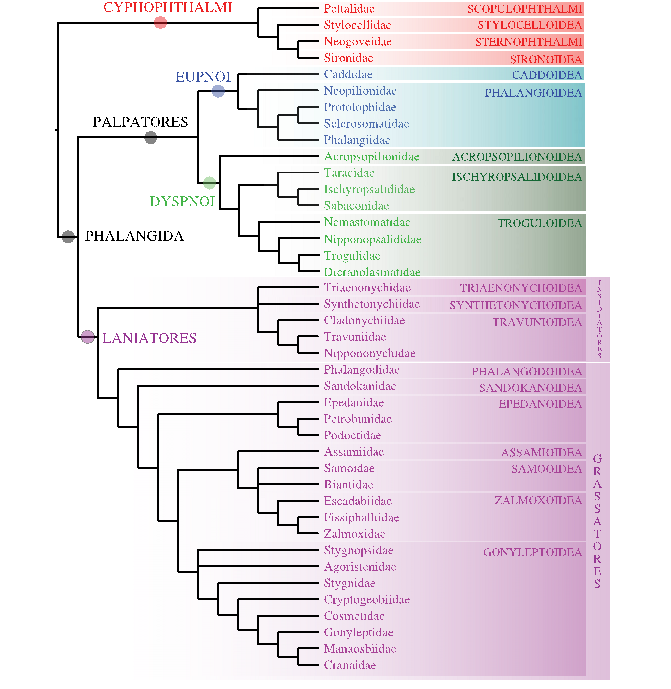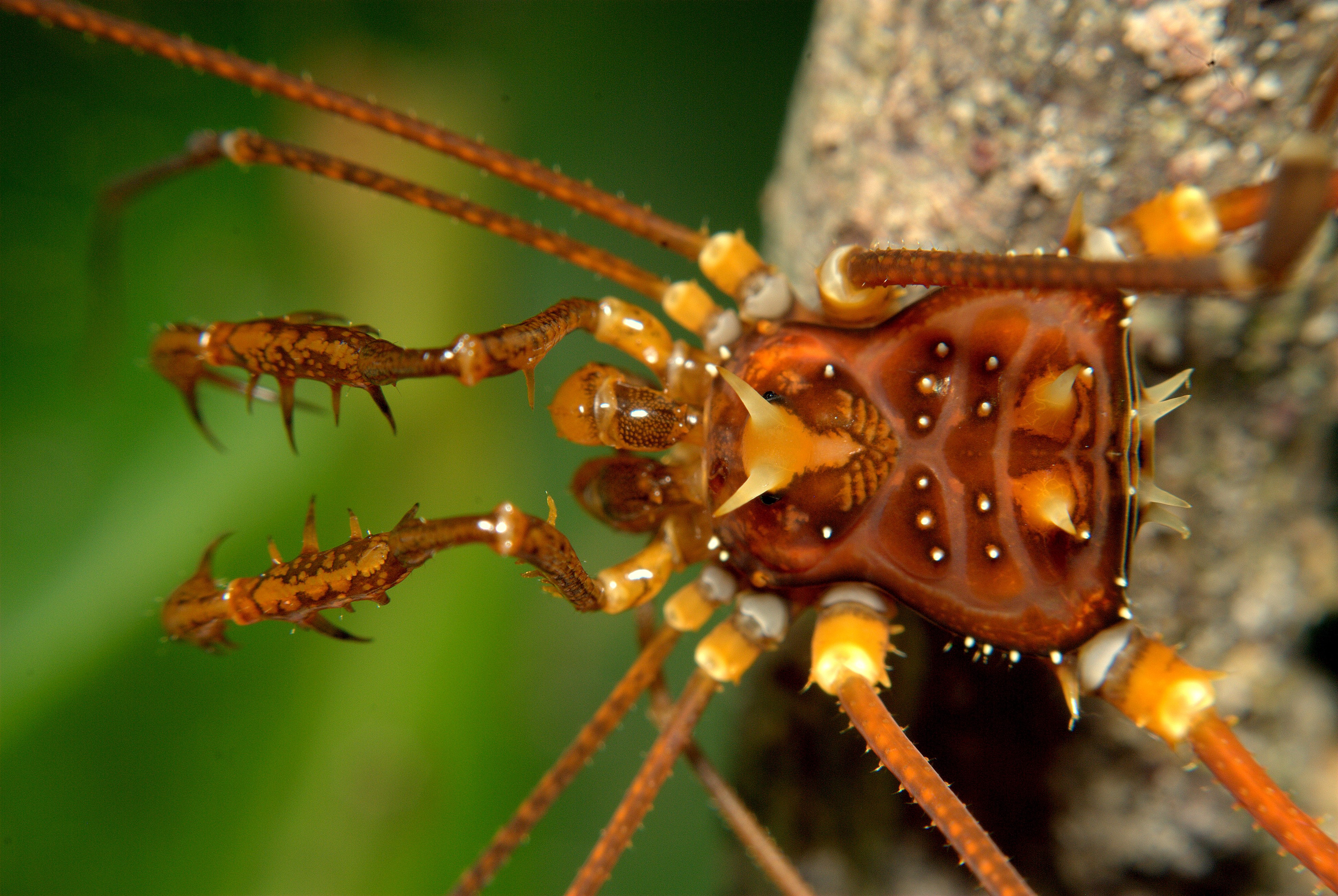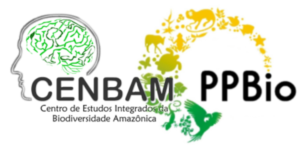Languages
PPBio Researcher publishes article in the Proceedings of the Royal Society.

The study used 54 transcriptionomas of opilions representing 40 of the 50 recent families of this order. The results also reveal that some ophelia have biogeographic patterns of separation reflecting Pangeia's general pattern of ancestral regionalization, while others closely follow the sequence pattern typical of their fragmentation.
The study was carried out during Ana Lúcia's postdoctoral studies at Harvard and was funded by CNPq via CENBAM.
Of the 54 transcripts, 40 were created specifically for this research and come from material collected by the researcher and her coauthors. Most of the species representing the families of Neotropical opilions were collected in the Ducke Reserve and are species endemic to the Brazilian Amazon.
The collections were carried out with the financial support of PPBio and CAPES, through a PVE project which funded the researcher and her postdoc supervisor at Harvard.
Text: Ana Lucia Tourinho
Translated by Tim Vincent (6/3/2017)

Phareicranaus manauara Roewer, 1913 (macho)

